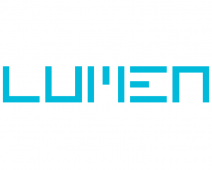Is First Party Ad Serving Really The Solution To The ePrivacy Directive And The Threat Of The Default DNT?
by Ciaran O'Kane on 11th Jun 2012 in News


The ePrivacy directive threatens to rain on digital media's revenue parade. The recent announcement from Microsoft about shipping its new browser with DNT defaulted to being ON is another by-product of this privacy lunacy.
Presuming for a second that ALL third party cookies are blocked (yes that also means ATDMT.com) then what potential impact does this have on marketers? Do they a) pull out of advertising in a channel that has never fully given them confidence (conceivable prospect) or do they b) assess different ways of working around these ill-conceived privacy initiatives? Let’s hope it’s the latter, otherwise we might as well all seek employment in TV buying.
What workarounds exist?
We’ve already mentioned that in some countries, if implied consent is the preferred legislative route, then sites could in theory ignore the header requests made by browsers. But there is another route to privacy salvation here that could very well see a huge change in the way media is executed: 1st party ad serving (1PAS).
The 1PAS concept is not new: we covered the concept over two years ago
Despite first party advocates banging the drum for some time, the 1PAS concept has not really lived up its hype. It has failed to dislodge the established 3rd party ad server from its strong position, and 1PAS also has had its own technical constraints.
But its time might now have come. With the backdrop of the privacy pantomime (now showing at a local parliament near you), 1PAS may now get soem serious traction. Given that the very nature of the cookies being set are first party, there is support to show that these cookies are much less likely to be deleted or opted out of, particularly if that user is an existing customer of said advertiser. Privacy policies and cookie notification overlays would also presumably cover the use of first party cookies being leveraged in a third party environment - immediate approval with no disruption to reporting, tracking or campaign execution.
Potential Impact of First Party Adserving
Beyond the tactical and strategic benefits 1PAS affords, it could have a huge effect on the agencies representing said advertiser. ExchangeWire has always maintained that the abandonment of working with an agency is a very complex and detailed process. But if advertisers get control of their own data collection, aggregation, management and distribution then you certainly have to question whether *some* existing agency buying methods would be brought in-house, particularly programmatic buying and retargeting.
Retargeting can be complex and incredibly nuanced in its execution (look at the services offered by Criteo and Struq for example). But for many it really is a case of building the right pixel architecture, plugging it into a real time channel and getting on with it. In the case of 1PAS, this is reliant on the buying platform being able to read from the 1st party cookie space and knowing “who” to target ads against. If it is even possible, then it could then have a significant impact on any business that makes money from standalone retargeting. But if additional third party cookies are required to execute retargeting across a DSP, then the full impact of 1PAS may never be realised.
But let's say the DNT privacy apocalypse arrives. If other browsers follow the Microsoft example of the default DNT (and some even go as far as Safari and block third party cookies), then retargeting becomes a non scalable media tactic. With 1st party ad servers such as Flashtalking, advertisers could still invest in digital and report on its effectiveness - even if digital advertising becomes wholly ineffective due to the inability to target. This is hardly a silver lining to the ePrivacy cloud, but at least ExchangeWire would still have "something" to comment and report on even if much of it will focus on how little ROI digital provides.







Follow ExchangeWire